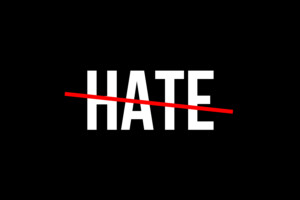How emotion, not economics, has shaped the real estate industry’s biggest disruptions
The quote “The only thing more powerful than money is hate” has been widely shared online and is often attributed—though never definitively—to fantasy author Terry Goodkind.
Regardless of its exact origin, the insight rings true, especially in industries where change is met with more than skepticism. In real estate, that change is often met with contempt.
Hate, in this context, isn’t just disagreement. It’s emotional resistance. It’s public trash talk, private retaliation, and backroom strategy sessions designed not just to win—but to destroy. And ironically, that emotional fuel has helped some of the most transformative real estate brands break through.

Zillow: the industry’s favorite villain
No company has attracted more hatred in modern real estate than Zillow. When it launched in 2006 with the Zestimate, brokers and agents erupted. The company was accused of misleading consumers, devaluing professional expertise, and undermining broker control. Never mind that the Zestimate drove massive consumer engagement or that Zillow wasn’t doing anything brokers weren’t already doing in print ads. The industry hated it – viscerally.
That hatred didn’t go away when Zillow launched Premier Agent. If anything, it intensified. MLS execs took shots in closed-door meetings. Broker associations warned members against using the platform. Conferences were full of anti-Zillow sentiment, often louder than actual strategy.
And yet, while many incumbents kept hating, Zillow kept scaling. It leveraged consumer attention, built partnerships, went public, and became the most recognized brand in real estate. The hate didn’t stop it—it probably made it stronger.
Redfin: blacklisted before it had a chance
When Redfin launched with salaried agents and a tech-first consumer model, traditional brokers didn’t just roll their eyes. They blocked access. Redfin agents were denied entry to broker open houses. They were ignored or attacked in professional circles. In some cases, they were told to leave industry events. The resistance wasn’t strategic. It was emotional.
This wasn’t about commission splits. This was about defending turf. And that defensive hate helped fuel Redfin’s rise. It gave the company a clear enemy. It clarified its message. And it validated to consumers that Redfin really was different.
Compass: money couldn’t silence the outrage
When Compass started writing large checks to lure top-producing agents, established firms erupted. Compass was called a “poacher,” “a tech pretender,” even “a threat to the soul of real estate.” Leaders who had quietly recruited competitors for decades suddenly labeled the practice unethical when Compass did it with more money.
But the pushback wasn’t about the money. It was about the nerve. Compass challenged the norms of recruitment, branding, and culture. And the hatred it attracted—public and private—was proof it had hit a nerve.
eXp: ridiculed, then replicated
When eXp introduced its cloud-based, no-office model with agent revenue share, critics didn’t just doubt it—they mocked it. Industry forums called it a pyramid scheme. Big brands questioned its legitimacy. Yet over time, eXp scaled into one of the fastest-growing brokerages in the world. And now, many of the same companies that once laughed are quietly testing similar models.

Hate travels faster than a business plan
This pattern plays out over and over again: new company launches, incumbents ridicule or resist, and the emotion becomes the story. Hate has a way of rallying insiders while accidentally spotlighting the outsider. It creates tension—and tension creates attention. If money builds the machine, hate supercharges the engine.
Why the quote matters
Hate is a powerful market signal. When established players stop ignoring you and start actively fighting you, you’re no longer a theory—you’re a threat. While money drives growth, hate proves relevance.
That’s why this quote resonates so deeply in real estate. It reminds us that emotion often drives more decisions than strategy. And that if your brand has made people uncomfortable—or even angry—you might be doing something right.
Mind your own business
My dad, Howard Lund, took a lot of criticism when he invented the aluminum fishing boat in a world of wood boats. He didn’t care. The media attention was free advertising. I discussed this with a client yesterday. Brokers would be better off minding their own business rather than standing on a pulpit about a competitor.
Don’t hate the MLS
The Multiple Listing Service in America, born out of the business meetings among members of the NATIONAL ASSOCIATION of REALTORSⓇ, is the greatest accomplishment in global real estate. It’s a trading platform that provides a neutral market for home buyers and sellers who are represented by licensed real estate professionals. It’s not perfect, and there are plenty of MLSs that are too large or too small to truly serve. I am not sure what size of MLS is just right – but local market satisfaction is a benchmark that tells the story.





And the only thing more powerful than hate is love. Love the MLS! (Remarkable post, Victor)